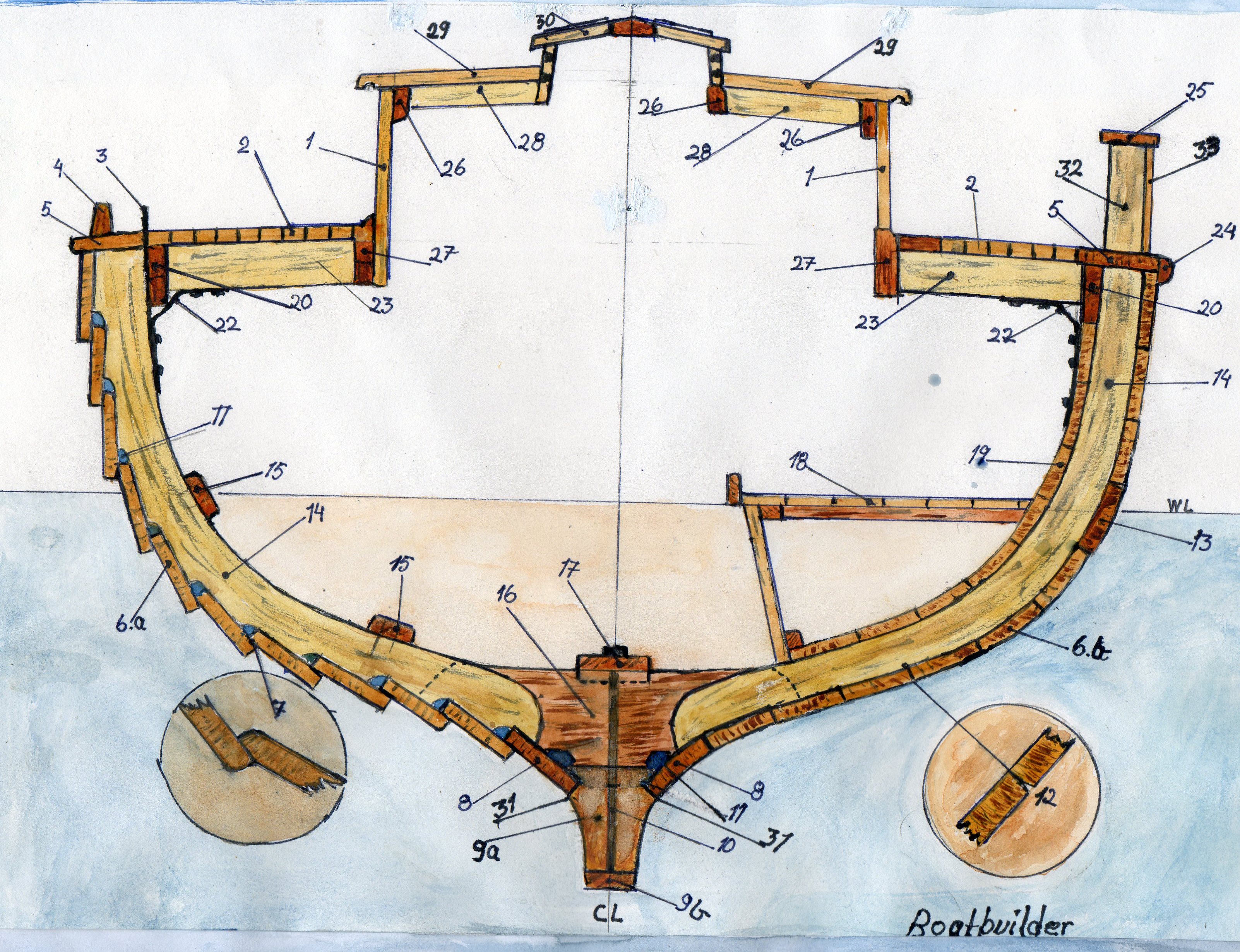|
Keelson
The keelson or kelson is a reinforcing structural member on top of the keel in the hull of a vessel. Originally used on wooden ships, in modern usage a kellson is any structural member used to strengthen the hull or support any heavy weight.Cutler and Cutler, p 126 In part V of “ Song of Myself”, American poet Walt Whitman Walter Whitman Jr. (; May 31, 1819 – March 26, 1892) was an American poet, essayist, and journalist; he also wrote two novels. He is considered one of the most influential poets in American literature and world literature. Whitman incor ... uses the phrase: “And that a kelson of the creation is love;” to imply that love is akin to a keelson, or backbone, that supports humanity. Citations References * * {{Sailing ship elements Nautical terminology Shipbuilding ... [...More Info...] [...Related Items...] OR: [Wikipedia] [Google] [Baidu] |
Boat Parts
A boat is a watercraft of a large range of types and sizes, but generally smaller than a ship, which is distinguished by its larger size or capacity, its shape, or its ability to carry boats. Small boats are typically used on inland waterways such as rivers and lakes, or in protected coastal areas. However, some boats (such as whaleboats) were intended for offshore use. In modern naval terms, a boat is a vessel small enough to be carried aboard a ship. Boats vary in proportion and construction methods with their intended purpose, available materials, or local traditions. Canoes have been used since prehistoric times and remain in use throughout the world for transportation, fishing, and sport. Fishing boats vary widely in style partly to match local conditions. Pleasure craft used in recreational boating include ski boats, pontoon boats, and sailboats. House boats may be used for vacationing or long-term residence. Lighters are used to move cargo to and from large ships unable ... [...More Info...] [...Related Items...] OR: [Wikipedia] [Google] [Baidu] |
Dictionary
A dictionary is a listing of lexemes from the lexicon of one or more specific languages, often arranged Alphabetical order, alphabetically (or by Semitic root, consonantal root for Semitic languages or radical-and-stroke sorting, radical and stroke for Logogram, logographic languages), which may include information on definitions, usage, etymologies, pronunciations, Bilingual dictionary, translation, etc.Webster's New World College Dictionary, Fourth Edition, 2002 It is a Lexicography, lexicographical reference that shows inter-relationships among the data. A broad distinction is made between general and specialized dictionaries. Specialized dictionaries include words in specialist fields, rather than a comprehensive range of words in the language. Lexical items that describe concepts in specific fields are usually called terms instead of words, although there is no consensus whether lexicology and terminology are two different fields of study. In theory, general dictionarie ... [...More Info...] [...Related Items...] OR: [Wikipedia] [Google] [Baidu] |
Song Of Myself
"Song of Myself" is a poem by Walt Whitman (18191892) that is included in his work ''Leaves of Grass''. It has been credited as "representing the core of Whitman's poetic vision."Greenspan, Ezra, ed. ''Walt Whitman’s "Song of Myself": A Sourcebook and Critical Edition''. New York: Routledge, 2005. Print. Publication history The poem was first published without sections as the first of twelve untitled poems in the first (1855) edition of ''Leaves of Grass''. The first edition was published by Whitman at his own expense. In the second (1856) edition, Whitman used the title "Poem of Walt Whitman, an American," which was shortened to "Walt Whitman" for the third (1860) edition. The poem was divided into fifty-two numbered sections for the fourth (1867) edition and finally took on the title "Song of Myself" in the last edition (1891–2). The number of sections is generally thought to mirror the number of weeks in the year. Reception Following its 1855 publication, "Song of Myself" ... [...More Info...] [...Related Items...] OR: [Wikipedia] [Google] [Baidu] |
Walt Whitman
Walter Whitman Jr. (; May 31, 1819 – March 26, 1892) was an American poet, essayist, and journalist; he also wrote two novels. He is considered one of the most influential poets in American literature and world literature. Whitman incorporated both transcendentalism and literary realism, realism in his writings and is often called the father of free verse. His work was controversial in his time, particularly his 1855 poetry collection ''Leaves of Grass'', which was described by some as obscene for its overt sensuality. Whitman was born in Huntington, New York, Huntington on Long Island and lived in Brooklyn as a child and through much of his career. At age 11, he left formal schooling to go to work. He worked as a journalist, a teacher, and a government clerk. Whitman's major poetry collection, ''Leaves of Grass'', first published in 1855, was financed with his own money and became well known. The work was an attempt to reach out to the common person with an American epi ... [...More Info...] [...Related Items...] OR: [Wikipedia] [Google] [Baidu] |
Nautical Terminology
Seamanship is the skill, art, competence (human resources), competence, and knowledge of operating a ship, boat or other craft on water. The'' Oxford Dictionary of English, Oxford Dictionary'' states that seamanship is "The skill, techniques, or practice of handling a ship or boat at sea." It involves topics and development of specialised skills, including navigation and international Admiralty law, maritime law and regulatory knowledge; weather, meteorology and forecasting; watchkeeping; ship-handling and small boat handling; operation of deck equipment, anchors and cables; ropework and line handling; communications; sailing; engines; execution of evolutions such as towing; cargo handling equipment, dangerous cargoes and cargo storage; dealing with emergencies; survival at sea and search and rescue; and fire fighting. The degree of knowledge needed within these areas is dependent upon the nature of the work and the type of vessel employed by a sailor, seafarer. History Shi ... [...More Info...] [...Related Items...] OR: [Wikipedia] [Google] [Baidu] |



